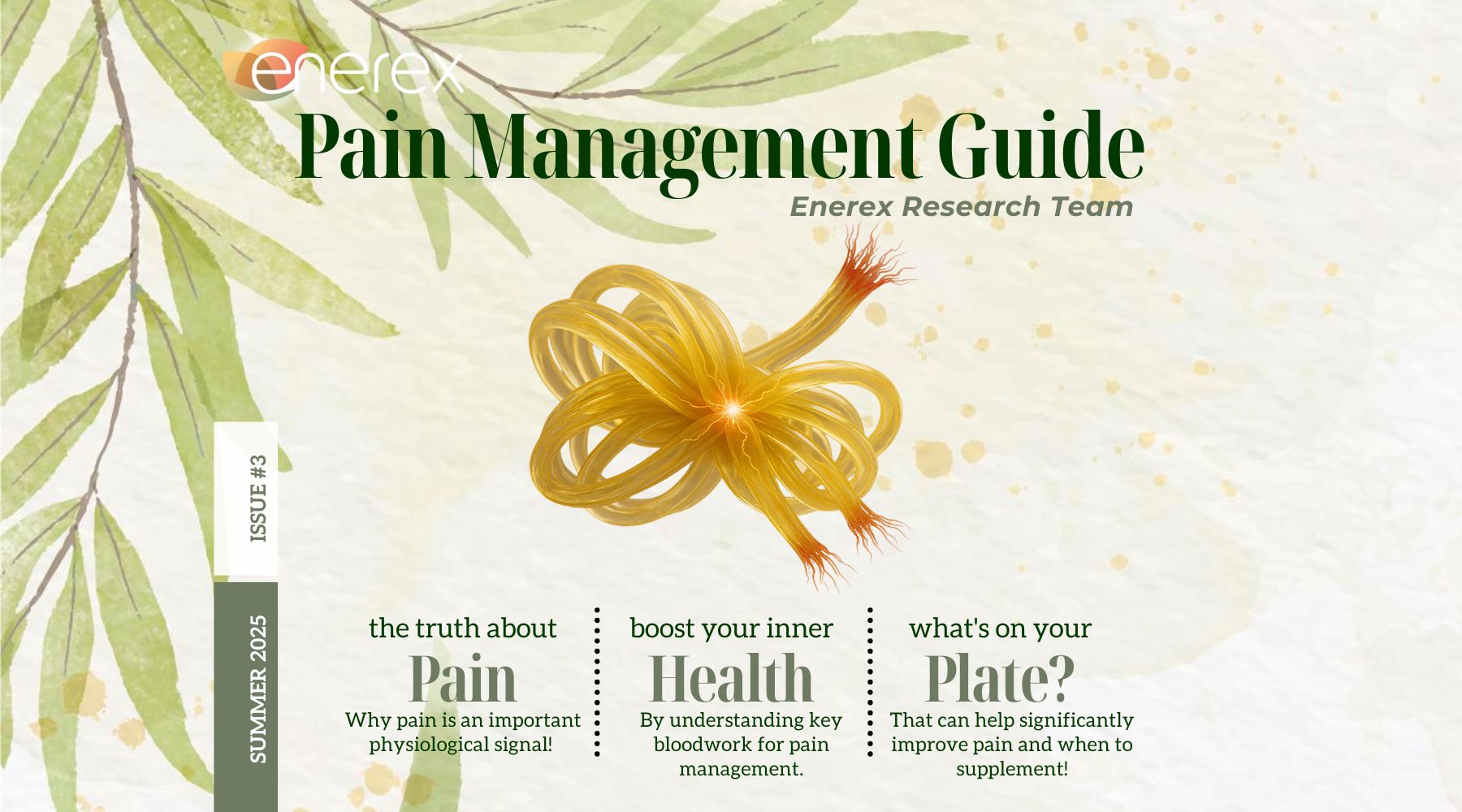Gut Health, Probiotics: Impacts on Fertility and Allergies

Unlocking the Potential of Gut Health: This comprehensive overview emphasizes the crucial role of the gut microbiome in managing allergies and enhancing fertility through diet and probiotics. Explore how gut health impacts immune responses, hormonal balance, and allergic conditions, revolutionizing approaches to reproductive and allergy-related challenges.
Blog Cotents
Gut Health and Probiotics: Revolutionizing Fertility and Allergies Through Scientific Insight
In recent years, a burgeoning body of scientific evidence has spotlighted the profound impact of gut health on allergies and fertility, unveiling a triad where diet, immune response, and genetic makeup intertwine. Central to this discourse is the gut microbiome—home to a myriad of gut bacteria that orchestrate immune system functions, influence hormonal balances essential for pregnant women, and modulate allergic diseases including food allergies and atopic dermatitis.
Bridging Allergies, Fertility, and Gut Health: A Clinical Perspective

Allergic conditions, marked by exacerbated immune responses such as atopic eczema and allergic rhinitis, have been clinically linked to fertility challenges. Research—a systematic review of numerous studies—illuminates how these allergic reactions extend the time to pregnancy (TTP) and disrupt menstrual cycles, implicating a direct impact on reproductive health. This suggests an increased risk where inflammatory pathways intersect with reproductive processes, necessitating a focus on immune modulation to foster better fertility outcomes.
Gut Microbiota: A Keystone in Immune and Reproductive Health
The gut microbiome, characterized by its diverse gut bacteria composition, emerges as a pivotal player in allergy prevention and immune tolerance. Clinical studies underscore the significant effect of a balanced microbiota in reducing allergy development, including food allergy and hay fever, by stabilizing immune cells' responses. Moreover, early life interventions involving the use of probiotics and breast milk can influence the infant's microbiome, suggesting a preventive approach against allergic conditions.
In the realm of fertility, the gut microbiota's influence stretches to regulating estrogen levels, an important role that underscores its potential as a therapeutic target for enhancing reproductive health. Recent studies have linked gut health disturbances with hormonal imbalances and adverse fertility outcomes, positioning gut-focused health interventions as critical for pregnant women and those seeking to improve fertility.
Spirulina and Digestive Enzymes: Allies Against Allergies and Gut Imbalance
Spirulina, a probiotic-rich food lauded for its health benefits, including its efficacy in combating allergic rhinitis and supporting gut health, is rich in fatty acids and antioxidants. Its role in modulating immune responses and potentially fostering a beneficial gut microbiota composition highlights its importance in a dietary management strategy.
Parallelly, digestive enzymes play a crucial part in nutrient absorption and maintaining gut integrity—factors essential for systemic health and mitigating allergic reactions. Their positive effect on gut health underscores the necessity of incorporating dietary supplements to support digestive tract function and overall well-being.
Probiotics: A Scientifically Backed Approach to Gut Health
Probiotic supplements, especially formulations like Enerex Pro Biotika + NAG, are at the forefront of gut health innovation, offering hope for conditions such as inflammatory bowel disease and allergic diseases. Delivering probiotic strains such as Lactobacillus acidophilus and Bifidobacterium bifidum, these supplements are designed to enhance immune function, restore digestive health, and support the intestinal microbiota, thereby contributing to a reduction in allergic responses and supporting fertility.
By leveraging the beneficial effects of specific probiotic strains, these supplements offer a holistic approach to managing gut health, with implications for reducing the prevalence of conditions such as bacterial vaginosis and enhancing the efficacy of probiotics in clinical trials and human studies.
Concluding Insights
The convergence of gut health, allergies, and fertility is an area ripe with potential for future research and clinical application. Through a comprehensive understanding of the gut microbiome, the use of probiotics, and natural aids like Spirulina and digestive enzymes, we can envisage a paradigm shift in managing these interconnected health issues. This holistic approach, underscored by the significant body of scientific evidence from recent studies and clinical trials, offers promising prospects for improving overall health outcomes, marking a significant stride in the field of health sciences and nutrition.
Article References
- Azad MB, Konya T, Persaud RR, et al. Impact of maternal intrapartum antibiotics, method of birth and breastfeeding on gut microbiota during the first year of life: a prospective cohort study. NCBI . Accessed April 14, 2024.
- Lang JM, Eisen JA, Zivkovic AM. The effects of maternal and infant diet on the bacterial community structure of fecal samples from an infant gut. NCBI . Accessed April 14, 2024.
- Smith-Norowitz TA, Weaver D, Norowitz YM, et al. Long term persistence of IgE anti-vaccine antibodies in pediatric patients. PubMed. 2020; PubMed . Accessed April 14, 2024.
- Bousvaros A, Guandalini S, Baldassano RN, et al. A Randomized Trial of Lactobacillus GG in Children with Crohn's Disease. NCBI . Accessed April 14, 2024.
- Kozyrskyj AL, Ernst P, Becker AB. Increased risk of childhood asthma from antibiotic use in early life. NCBI . Accessed April 14, 2024.
- Furrie E, Macfarlane S, Kennedy A, et al. Synbiotic therapy (Bifidobacterium longum/Synergy 1) initiates resolution of inflammation in patients with active ulcerative colitis. NCBI . Accessed April 14, 2024.
- Martin R, Makino H, Cetinyurek Yavuz A, et al. Early-Life Events, Including Mode of Delivery and Type of Feeding, Siblings and Gender, Shape the Developing Gut Microbiota. NCBI . Accessed April 14, 2024.
- Dominguez-Bello MG, Costello EK, Contreras M, et al. Delivery mode shapes the acquisition and structure of the initial microbiota across multiple body habitats in newborns. NCBI . Accessed April 14, 2024.
- Stiemsma LT, Michels KB. The role of the microbiome in the developmental origins of health and disease. NCBI . Accessed April 14, 2024.
- Tanaka M, Nakayama J. Development of the gut microbiota in infancy and its impact on health in later life. NCBI . Accessed April 14, 2024.
- Koleva PT, Bridgman SL, Kozyrskyj AL. The infant gut microbiome: evidence for obesity risk and dietary intervention. NCBI . Accessed April 14, 2024.
- Woods L. Spirulina: A Luxurious Blue-Green Algae that Nourishes Your Body. Medical News Today. Medical News Today . Accessed April 14, 2024.
- Ho NT, Li F, Lee-Sarwar KA, et al. Meta-analysis of effects of exclusive breastfeeding on infant gut microbiota across populations. NCBI . Accessed April 14, 2024.
- Thompson AL, Monteagudo-Mera A, Cadenas MB, et al. Milk- and solid-feeding practices and daycare attendance are consistent with differences in bacterial composition of infant feces. PubMed. 2022; PubMed . Accessed April 14, 2024.
- Gomez-Arango LF, Barrett HL, McIntyre HD, et al. Connections between the Maternal Gut Microbiome and the Placenta relevant to Asthma and Allergy outcomes in offspring. NCBI . Accessed April 14, 2024.
- Arrieta MC, Stiemsma LT, Amenyogbe N, et al. The gut microbiome in early life: Health and disease. NCBI . Accessed April 14, 2024.
- Azad MB, Coneys JG, Kozyrskyj AL, et al. Probiotic supplementation during pregnancy or infancy for the prevention of asthma and wheeze. NCBI . Accessed April 14, 2024.
- Korpela K, Salonen A, Virta LJ, et al. Lactobacillus rhamnosus GG supplementation for preventing respiratory infections in children. NCBI . Accessed April 14, 2024.
- Bäckhed F, Roswall J, Peng Y, et al. Dynamics and Stabilization of the Human Gut Microbiome during the First Year of Life. NCBI . Accessed April 14, 2024.
- Johnson CL, Versalovic J. The human microbiome and its potential importance to pediatrics. NCBI . Accessed April 14, 2024.







Laissez un commentaire